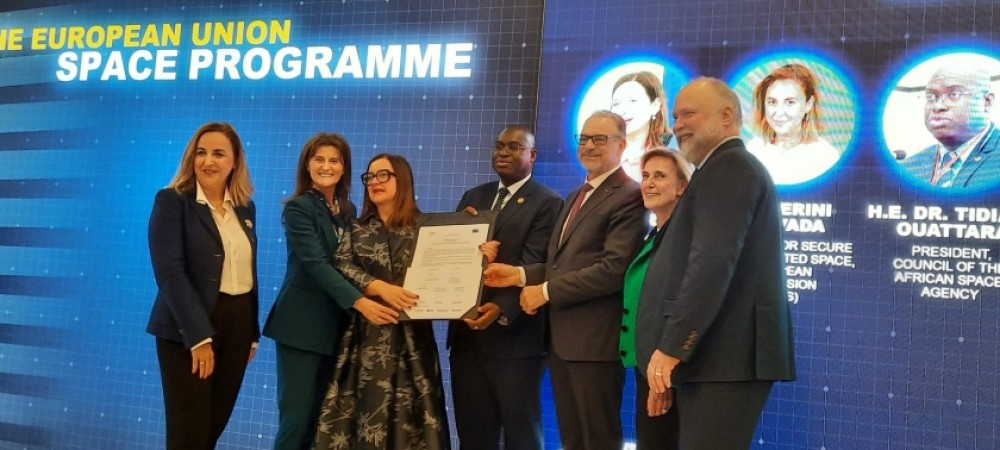
The European Commission has launched the Africa-EU Space Partnership Programme, a €100 million initiative aimed at enhancing Africa’s space capabilities while addressing pressing climate challenges. Announced on January 29 at the European Space Conference in Brussels, the programme is a key component of the EU’s Global Gateway strategy, reflecting Europe’s commitment to sustainable development and equitable international cooperation.
One of the primary goals of this initiative is to leverage space technology to improve climate resilience across Africa. As the continent faces increasingly severe climate-related disasters, the programme will provide advanced early warning systems to help mitigate the impact of extreme weather. By integrating satellite data with local decision-making, African nations will be better equipped to prepare for and respond to climate-induced emergencies, ultimately protecting both lives and economies.
Beyond climate resilience, the programme aims to strengthen institutional collaboration between the EU and African nations. By fostering closer partnerships, the initiative will help improve policy frameworks and decision-making processes within the space sector, ensuring that both regions benefit from shared expertise and technological advancements. Additionally, the initiative places a strong emphasis on stimulating Africa’s private sector growth, particularly in the space industry. By equipping African businesses with the necessary tools and resources, the programme will encourage innovation, digital transformation, and the development of a space-based data economy. This will not only support Africa’s sustainable development but also create new market opportunities for European space companies, reinforcing global competitiveness.
The Africa-EU Space Partnership aligns with the broader objectives of the EU’s Global Gateway Strategy, which seeks to mobilize investments in critical sectors that promote sustainability, digitalisation, and technological advancement worldwide. Through this investment in Africa’s space sector, the EU is contributing to long-term economic growth, enhanced research capabilities, and greater climate action initiatives.
Speaking about the initiative, Jozef Síkela, EU Commissioner for International Partnerships, highlighted its transformative potential. He emphasized that the programme represents a crucial part of the EU-Africa cooperation, as both regions work together to harness the power of space technology to tackle global challenges, enhance digitalisation, and build lasting partnerships. He noted that space represents a new frontier for progress, and this initiative ensures that Africa can fully participate in and benefit from this advancement.
By integrating space technology into sustainable development efforts, the Africa-EU Space Partnership not only addresses immediate environmental concerns but also lays the groundwork for long-term economic and technological progress. With a strong focus on collaboration, innovation, and investment, the programme is set to reshape Africa’s space sector while fostering a more resilient and prosperous future for both continents.
Article by Nyokabi Wanjiku
Photo/Google

Comment